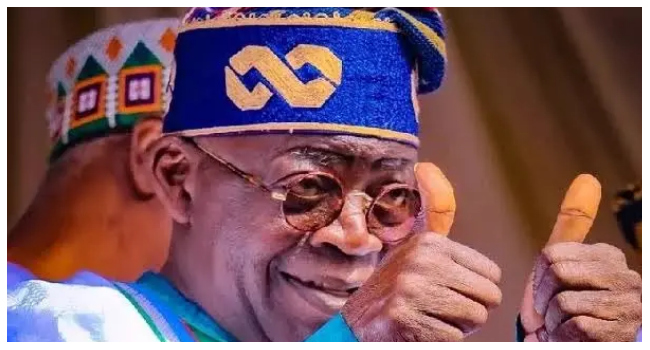Ambassadors: FG screens Femi Fani-Kayode, Femi Pedro and others.
The federal government is looking for people to fill diplomatic positions in its 109 missions, 76 embassies, 22 high commissions, and 11 worldwide consulates.
According to reliable sources, the nominees include Femi Fani-Kayode, a former Minister of Aviation under the Obasanjo government, and Femi Pedro, a former Deputy Governor of Lagos State.
The verification is not done centrally; nominees are asked to report to the DSS offices closest to them.
Presidency officials acknowledged to our correspondent that numerous candidates had been asked to furnish personal information and job background.
“They are already conducting security checks with DSS. We will provide the list once they have cleared security tests.
“Only those cleared are announced. The procedure is underway. “I know we should have a list by the end of this month (April),” said one official, who preferred to remain unnamed because he was not permitted to speak to the media.
A second source stated, “Vetting is not done centrally. It is based on the nominees’ locations. Nominees have been contacted to offer personal background and information such as where they attended school, what positions they have held, and so on. So, it’s location-based.”
President Bola Tinubu’s foreign policy has been conducted without ambassadors since September 2023, focussing on Democracy, Development, Demography, and Diaspora.
That month, he completed a sector-wide examination of Nigeria’s foreign policy, resulting in the recall of over 83 career and non-career ambassadors.
Last December, trustworthy sources close to the President stated that Tinubu spent part of his holiday reviewing nominee names, with plans to provide a consolidated list to the National Assembly by the end of the month.
However, updates in January revealed that the President had changed his mind.
Our source learnt that the procedure was delayed due to a lack of funds—to the tune of $1 billion—needed to pay arrears to foreign service officials, settle a backlog of overheads, replace old vehicles, and restore diplomatic premises.
One official, speaking on the condition of anonymity, stated, “You see, the main issue is money. Not enough money to pay them [ambassadors], given how big their wages and benefits are. The primary funding source is CAPEX [Capital Expenditure]. The cost of resolving the faults is expected to be around $1 billion.
“Nearly 90% of those embassies are in poor condition. Either the apartment is subpar, the embassy lacks a functional office, or their lease has ended. The upbeat embassies may not be numbering more than ten as we speak.
“I understand that some of them do not own functioning autos. They bought their previous vehicle ten years ago. Some are broken down, and ambassadors are not permitted to use such vehicles because they represent the country. Some don’t even have electricity or running water. So, if you send diplomats there now, you are putting them into trouble.”
Yusuf Tuggar, the Minister of Foreign Affairs, ascribed the delay to financial constraints.
“It is a money problem,” Tuggar stated at a ministerial briefing in Abuja last May.
He contended that appointing ambassadors without sufficient financial means to fund their travel and the successful operation of missions abroad was meaningless.
“We saw a situation in which international affairs was not properly supported. Binance, for example, takes advantage of some loopholes. It’s a money problem.
“There is no use in sending out ambassadors if you do not have the means to allow them to travel to their designated nations, and funding is required to run missions properly.” The President is working on it, and it will be completed in due course,” Tuggar stated.
A foreign service official indicated that while provisions had been made in the 2025 budget to cover part of the costs, the funds were insufficient.
According to the presidency and foreign service officers, while the entire list of nominations is highly classified, certain prominent and controversial personalities are being reviewed.
One official stated, “They will announce the appointments soon. They’re being screened as we speak. For the time being, the names of the nominees are kept under wraps because not all of them will be chosen.
“Femi Fani-Kayode (FFK) is on the list. These are only a few of the contentious names that have been suggested. Then there’s Fola Adeola, the founder of Guarantee Trust Bank Plc, and Femi Pedro. They’re moving the process along more swiftly this time.”
Another official emphasised that the long process was important to avoid issues that could harm the country’s reputation on the global stage.
“The nominees are being vetted, and background checks are being run on them. It is normally done to ensure that the nominees do not face any security risks and that their deployment has no negative impact on the country,” the official added.
There were also reports that Reno Omokri, a former advisor to former President Goodluck Jonathan, was on the list.
However, a reliable source in the presidency refuted it.
“Reno isn’t on the list. But FFK is there,” the source stated.
Mr Bayo Onanuga, the President’s Special Adviser on Information and Strategy, who previously discussed the delays, stated that nominees for ambassadorial positions must be thoroughly reviewed before a final list is sent to the National Assembly.
“Remember that the ambassadorial list contains two parts. There are two types of ambassadors: career and political. The international affairs and consolidated lists will still go through certain steps before being publicised,” he explained.




